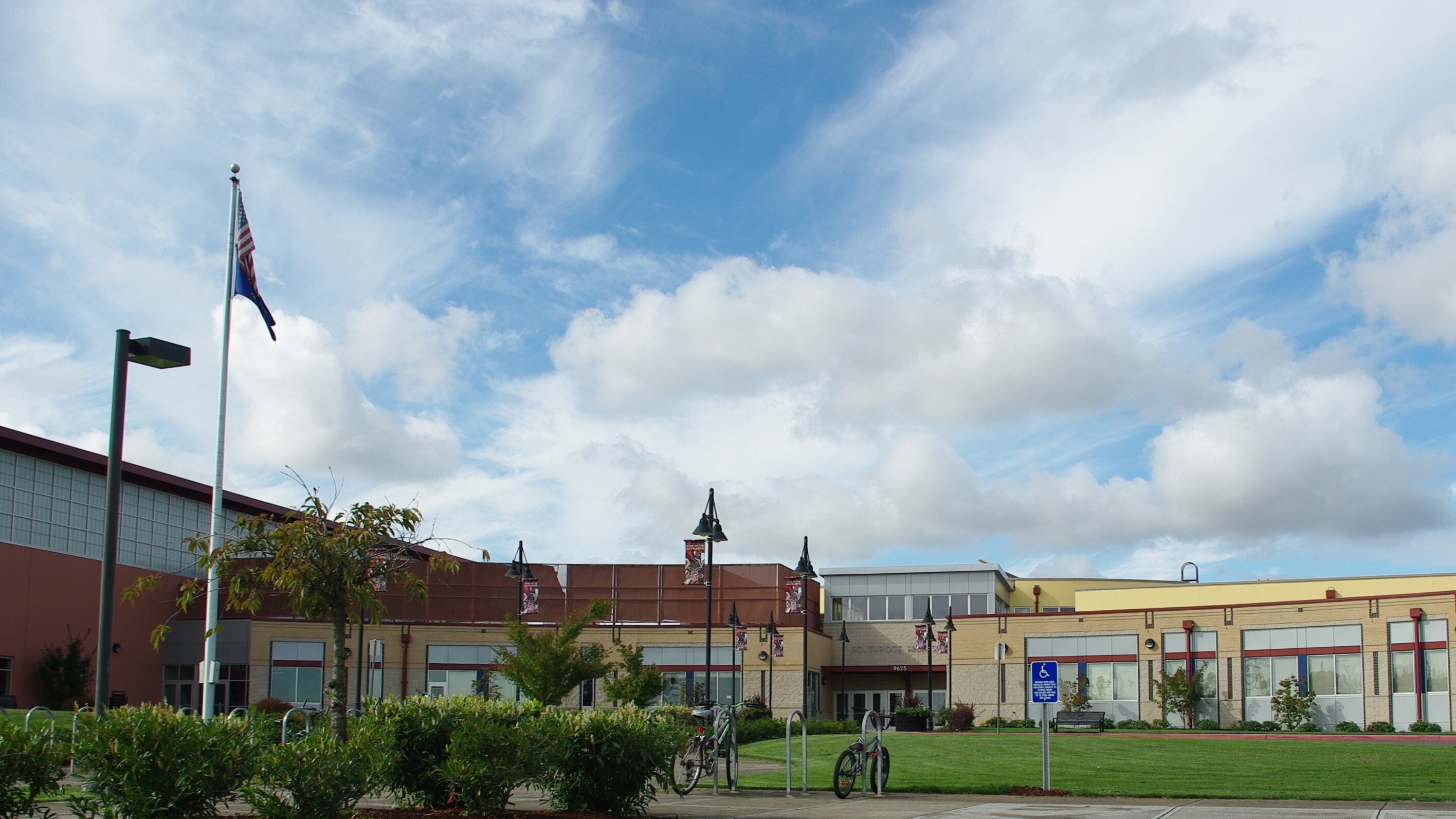Last month, the Portland Public Schools board approved paying over $1 million to fund nine police officers in schools.
The vote prompted former Portland activist Gregory McKelvey to recount his experiences with a school resource officer when he was a student at Southridge High School in Beaverton in 2010. In his account, he described officers allegedly showing up at his door with guns to retrieve a missing calculator.
The story, which went viral on Twitter, was part of a larger critique of McKelvey's that students of color experience disproportionate targeting by police and that stationing officers in school is a harmful distraction.
"I think that my experience is similar and believable to the black youth that went to my school and the people of color that are going to schools with police officers across the country," McKelvey says.
Andrew Halbert, the school resource officer stationed at Southridge in 2010, and the officer who carried out the warrant to search McKelvey's house, agrees that examining the role of cops in schools is important. But he says he "disagrees with [McKelvey's] characterization of what happened."
The Oregonian first reported Halbert's side of the now nearly decade-old story.
In 2010, Halbert, who spent two and a half years and Southridge before leaving to attend law school, says there was an investigation into small electronics thefts pending.
"I was receiving multiple accounts of small electronics thefts per month—iPhones, iPods, graphing calculators," he says. "The calculator was a piece of evidence that led to the execution of a search warrant."
While carrying out the warrant, Halbert alleges, "There was no tactical gear used. We were in regular uniforms. The only show of force was our presence."
McKelvey disputes Halbert's account. "I think that in any instance of police misconduct or abuse of power we, as a society, hardly ever see them take accountability for their actions," he says. "Instead it's usually deflect and defend."
Jeremy Shaw, a public information officer with the Beaverton Police Department, says because McKelvey's case was a juvenile record at the time it cannot be shared. He adds that the way in which search warrants are carried out are based on risk-level, and that house searches "aren't uncommon for what we do."
"Almost all types of criminal activity that happen outside of school also happen inside school," he says. "They just happen within school in a smaller number."
Halbert says the search of McKelvey's house was classified a low risk level. But he adds, "I don't need to re-litigate the past."
"Continuing the conversation about police in schools and how that role should be defined is important," he continues. "And anyone's shared experience is important. I don't diminish [McKelvey's] passion for social justice. I respect his goals and wish him nothing but success."

